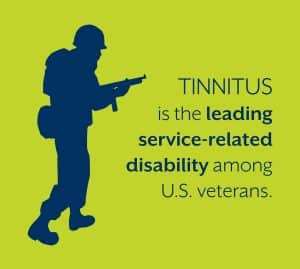Your ears need special care in order to allow you to hear your best! You should have your ears checked regularly by a hearing care specialist to stay on top of your hearing health. Hearing loss is typically gradual and age-related. However, the only preventable kind of hearing loss is Noise-Induced Hearing Loss or NIHL. Although you may adjust to the loud sounds over time, unfortunately, your ears and brain will not. By the time you notice your hearing loss, it is often already too late to prevent damage to your ears. The sounds around us connect us to other people, memories, and activities we enjoy. Our hearing is a precious commodity that enhances our life and learning experiences. To enjoy all the sounds of your life, properly caring for your ears is the best way to prevent hearing loss and protect all that your hearing does for you.
Noise can be harmful if you are exposed to it for an extended period of time or if it is a very loud impact noise that is short in duration.

It is important to follow some basic rules to protect your hearing and prevent hearing loss. Noise-Induced Hearing Loss (NIHL) can be prevented if you remember to:
- Turn it down
- Walk away
- Protect your ears
More specifically, you can:
- Limit your amount of time that you are exposed to noise
- Wear hearing protection (foam earplugs, ear muffs, custom hearing protection)
- Turn down the volume of your radio, MP3 player, television, etc.
- Avoid medications that may be harmful to your hearing
Signs that your environment may be too loud:
- You have difficulty hearing someone who is within three feet of you
- You have pain in your ears, ringing or buzzing (tinnitus), and/or difficulty understanding speech after being in a loud setting
- Remember only you can protect your hearing and prevent any kind of hearing loss!
( https://my.clevelandclinic.org/health/diseases/17053-hearing-loss-prevention)
Ever-increasing evidence shows treatment of hearing loss with hearing aids can improve or limit some serious health issues such as cognitive decline and dementia. In fact, a 2017 study revealed that treating hearing loss is the single greatest change a person can make to lower their risk for dementia.
Here are some simple but very effective ways to protect your ears.
- Avoid harmful noise
If you are going to a concert make sure to wear ear protection. Wear proper ear protection when firing guns or near people who are. - Get your hearing checked regularly
Stay on top of your hearing health. If you notice that you aren’t hearing as well as you were, give us a call or visit any one of our Southwestern Hearing Centers locations for a free screening. - Control ear wax
Ear wax helps to keep our ears protected and moisturized. However if you produce too much wax, it can become impacted and prevent sound from entering the ear. This is one of the most common causes of conductive hearing loss. Luckily this type of hearing loss is usually temporary. If impacted ear wax is left untreated, it may lead to more permanent hearing loss. - Reduce stress
Excessive stress can cripple your mental and physical health. Make sure to keep stress levels low by practicing stress relief techniques such as meditation and relaxation. The development of hypertension can result from significant long-term stress, which is another condition linked to hearing loss and tinnitus. Hypertension has been shown to accelerate age-related hearing loss. - Watch your diet
Your diet plays a crucial role in both your health and the way you hear. Make sure to choose healthy choices over fast food or processed junk. - Nix the nicotine
Smokers have a 15% increased risk to have hearing loss than non-smokers. The chemicals found in cigarettes affect the way your ears process sound. - Minimize pain reliever use
Overuse of pain relievers can lead to temporary or permanent hearing loss. These types of medication are classified as ototoxic, which means that over time they poison your ears.